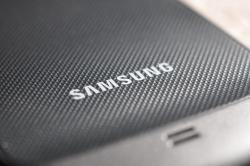Cisco Systems and Samsung are the latest major tech vendors to sign a long-term cross-licensing patent deal in hopes of reducing their risk to patent-infringement lawsuits from other vendors or patent trolls.
The companies announced the 10-year agreement on 5 February. Under the terms of the deal, both vendors will be able to access the patents that are in their portfolios now and that will be developed over the pact’s timeframe. Cisco and Samsung said in a statement that the agreement “covers a broad range of products and technologies,” but declined to elaborate on what those technologies are or any other parts of the deal.
Patent deals
The agreement comes as both companies deal with costly patent-infringement cases. For Samsung, that has included an ongoing and expensive patent feud with Apple. Samsung in recent months has looked to handle patent issues through negotiations rather than lawsuits.
 The company in January reached a patent deal with rival Ericsson, a move that ended a patent legal battle that stretches back to late 2012, when Ericsson sued Samsung for allegedly infringing on its intellectual property. The case involved licensing agreements that Samsung had signed in 2001 and 2007 to use Ericsson patents, with Ericsson officials claiming some of those agreements had expired.
The company in January reached a patent deal with rival Ericsson, a move that ended a patent legal battle that stretches back to late 2012, when Ericsson sued Samsung for allegedly infringing on its intellectual property. The case involved licensing agreements that Samsung had signed in 2001 and 2007 to use Ericsson patents, with Ericsson officials claiming some of those agreements had expired.
Samsung on 27 January announced a 10-year cross-licensing patent agreement with longtime partner Google. Samsung has leveraged Google’s Android mobile operating system, a move that has helped propel Samsung to an elite position within the booming mobile device market, where the company now stands as Apple’s primary competitor. It also came among speculation that Samsung officials may be considering expanding the company’s use of another mobile OS, Tizen.
Cisco also has been entering patent-licensing agreements, most recently on 4 February with Google. As with the other deals, officials with the companies saw the deal as a way of gaining access to IP while also protecting themselves from future litigation.
That message was the same with Cisco’s agreement with Samsung.
“Innovation is stifled all too often in today’s overly litigious environment,” Dan Lang, Cisco’s vice president of intellectual property at Cisco, said in a statement. “By cross-licensing our patent portfolios, Cisco and Samsung are taking important steps to reverse the trend and advance innovation and freedom of operation.”
Innovatio settlement
Cisco on 6 February announced a $2.7 million (£1.7m) agreement with a patent firm, Innovatio IP Ventures, to settle a lawsuit the networking vendor and several other tech firms filed against it over patents. Innovatio is a patent assertion entity – also known as a “patent troll” – that makes money by buying patents from companies and then asserting those patents against other companies that already have products on the market. Innovatio also went after customers of Cisco, NetGear and others, demanding licensing fees of $2,300 to $5,000 for using Wi-Fi routers and other products.
Cisco officials said the money Innovatio was asking for from those customers was close to $4 billion. In the end, Innovatio settled for $2.7 million, or about 3.2 cents per device. Cisco spent $13 million in the lawsuit, but officials said they wanted to protect customers from such schemes.
In a post on the Cisco blog, Mark Chandler, the company’s general counsel, urged lawmakers to set policies in place to make it more financially risky for companies like Innovatio to threaten frivolous litigation unless licensing fees are paid. The US House of Representatives in December 2013 passed legislation that would require patent firms to prove that their claims are justified or risk having to pay all of the litigation costs if they lose a case. The bill is now before the Senate.
Do you know all about Microsoft Windows Phone? Take our quiz.
Originally published on eWeek.





